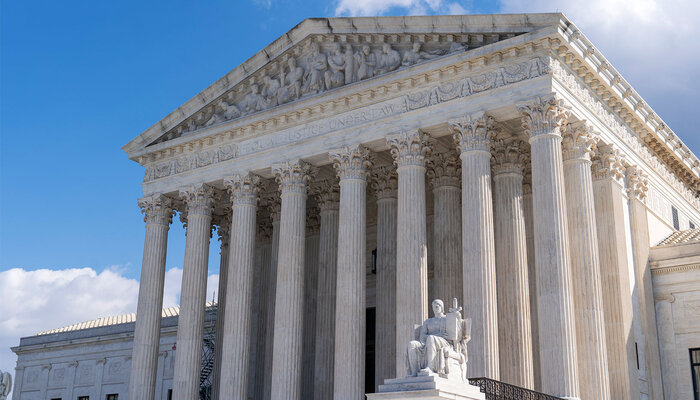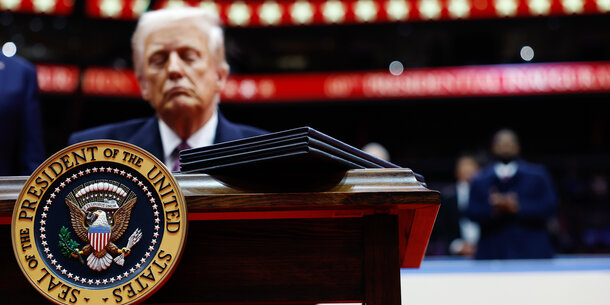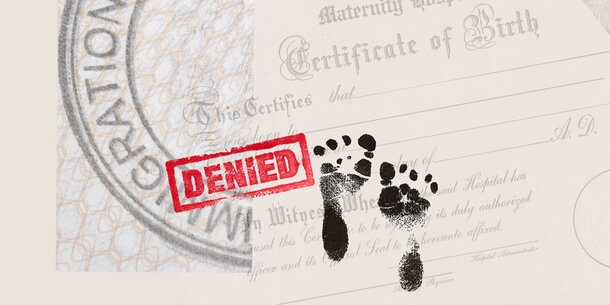This piece was originally published by Newsweek.
The U.S. Supreme Court's new term is here, offering new opportunities for the justices to remake our constitutional rights in the name of history. In its last two terms alone, the court did just that to eliminate the federal right to abortion, undercut gun control measures, and undermine affirmative action. But whatever the Justices are up to, it isn’t history.
This term, lawyers are asking the court to use history to undermine the federal government’s power to solve national problems. Cases like Loper Bright Enterprises v. Raimondo and Consumer Financial Protection Bureau v. Community Financial Services Association of America could jeopardize the government’s ability to regulate industry, commerce, and more. Meanwhile, in United States v. Rahimi, historical arguments could put guns back in the hands of domestic abusers who committed violence against their families.
These latest gambits might well fail. As a group of leading historians have demonstrated in a brief to the court in Rahimi, for example, history weighs in on the side of disarming violent domestic abusers. But even if their view prevails this time, we can’t overlook a basic problem, obvious to anyone trained in history: This originalist court claims to be doing history, but it just isn’t.
The court has always invoked historical understandings and precedents in its decisions, but its recent calls to history flow from a different source: a longstanding commitment in conservative political and legal circles to “originalism,” the idea that our constitutional rights are defined by—and limited to—whatever the earliest generations of Americans thought the Constitution meant several hundred years ago. So, if it were against the law to go hatless in the late-eighteenth century, hat-wearing would be banned today. Originalism denies the reality that law must change over time as our society changes.
Originalism has been around for several decades. But the threat it posed grew graver in the fall of 2020, when Justice Amy Coney Barrett took the bench and gave the court a 6–3 supermajority of conservative Justices. After that, time-honored rights, laws, and precedents started falling quickly, all on supposedly historical grounds.
But—notwithstanding what the court’s opinions might suggest—history is more than looking at select old things. Historians write about the past, using methods and tools they’ve developed over time to make statements that are reliable. To do their job well, historians must acknowledge the complexity of the past and the importance of context for making sense of things, among many other considerations. The court isn’t following those same standards.
The main story that the originalism wants to tell—and then lock us all into for the rest of time—is the story of the Constitution’s “original meaning.” But historians know that the Constitution, like most texts or historical events, doesn’t have (just) one historical meaning. Debates over its meaning raged during its framing and its ratification. They were widespread through the struggles after the Civil War over the Reconstruction Amendments, amendments that continue to play an important role in American life. And they are still happening to this day because the Constitution is complex.
This relates to another feature of the historical problem with originalism. Originalism’s supporters claim that it’s “objective,” and that it thus prevents judges from injecting their personal views into the law by anchoring the law’s meaning in the past. But historians know that there’s no such thing as a fully “objective” or definitive account of the past. Interpretations of historical events change over time, as new evidence appears, or new perspectives cast light into different corners of the past.
The problems run deeper. The court’s originalist opinions strip away all the context necessary to make sense of the past. All historians know that context is key to understanding any historical source, including the Constitution. The court’s originalist opinions, however, lack that key background. They offer the public hyper-focused discussions of individual words and historical dictionaries alongside lists of citations to old statutes and cases that seem arbitrarily chosen (or arbitrarily rejected). Facts that are key to understanding what was going on at the time are omitted. Can one really interpret the Second Amendment without acknowledging that the vast difference in lethality between contemporary assault rifles and the “arms” borne by Americans in the late-18th century—commonly muskets and flintlock pistols that could only fire one round at a time and with little accuracy? This isn’t history. It’s just a collection of old things.
Crucially, rejecting the court’s abuses of history doesn’t mean ejecting history from our attempts to make sense of the Constitution.
History can help us all—lawyers, judges, scholars, and everyday people—expose blind spots in old ways of thinking about the Constitution and point to new ones. It can shed light on the values and beliefs that have shaped our politics and law in the nation’s earliest years and show how later generations have met them, exceeded them, failed them, and changed them. It can present the stories of people who were excluded from constitutional decision-making in the past and challenge us to reconsider our constitutional commitments with their perspectives and interests in mind. Remember—history reminds us—women did not have the right to vote at the time the 14th Amendment was ratified. And that’s just for starters.
History can help the law move forward. Whatever the court’s doing in fixating on the past, it’s not doing that.
Alexander Keyssar is the Matthew W. Stirling Jr. Professor of History and Social Policy at the Harvard Kennedy School. He is an historian and the author most recently of Why Do We Still Have the Electoral College? (Harvard University Press, 2020).
Thomas Wolf is deputy director in the Democracy Program at the Brennan Center for Justice at NYU Law.







